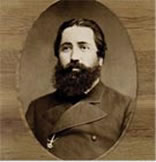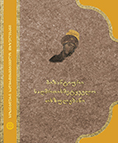 |
|
Scientific
and social journal SUMMARY
TINA IVELASHVILI For centuries Goergia's people and it's leaders havecared about protecting and strengthening it's moral principles, individualism, and national identity. Currently, a large-scale, targeted attack is taking place on Georgian national values, family UNITS and morality. In this aspect, Georgian people have never faced such a threat of social degeneration as in the present time. The laws passed in recent years by Georgia's previous government are the gravest crimes commited against Georgian citizens. These laws are an zffront to Georgia. These laws are contrary to Georiga's national smirit, moral standards, national strength and independence. ANZOR TOTADZE Georgia carried out A census from November 5th to November 19th, 2014. The census was conducted on 82% of the entire territory of the country (57 thousand square kilometers.) The census did not include the occupied territories, in particular in Abkhazia and the Tskhinvali region (total area of 13 thousand square kilometers). By November 5th, 2014, the population of Georgia was 3,713,804, which was 15% less (657 731) than the previous results of the census of 2002 (4,371,535). According to the results of 2014 census, the urban population was 2,122,623, and the rural population was 1,591,181. The Decline in population was noted mainly in rural areas. It amounted to 7.1%. According to the results of the census, 47.7% of the Georgian population were men, and 52.3% were women. Based on 2014 census results 86,8 percent were Georgians, 6,3 percent were Azerbaijanians, and 4,5 percent were Armenians. 83, 4 % of the population were Orthodox, 10.7 percent were Muslims, and 2.9 % were Apostolic>> <<Armenians. Also, 26.7% of the population were with higher education, 17.4% vocational education, 36.7% secondary education, 8.4 % intermediate education and 5.7% primary education.
ZURAB TSUTSKIRIDZE In order to prevent a recurrence of the past events, Georgian people, especially on the eve of the parliamentary elections, should never forget the horrors that the nine-year rule of the "National Movement" caused. The author urges every reader to be sensitive and not to forget that history knows no mercy.
GULBAAT RTSKHILADZE The article reviews prophetic affirmations of one Byzantine church about the capture of Constantinople by Muslims and the restitution of Constantinople to its “original owners” by messianic "people of fair hair." Later the people are identified as Russians by medieval ecclesiastical writers like Pachomius the Serb. The author of the article researched the etymology of "Russians" and discovered that the oldest written evidence of this terminology belongs to the 14th-century scholars and copyists Ioane Tshopaishvili and Daniel Khambashuri in a context of the liberation of Constantinople from the Turks. Furthermore, the article quotes the 20th-century Russian historian Nikolay Ulyanov. He believes that the expression "Russians" was first introduced by the Georgian authors. Ulyanov basis his opinion on the French translation of the Georgian manuscripts made in the middle of the 19th century by an outstanding French orientalist Marie-Félicité Brosset. Thopiashvili-Khambashuri manuscripts are kept in St. Petersburg. The author considers quite sensational that the concept "Russians" is first recorded in Georgian. He thinks that the Russian messianic teachings on the liberation of Constantinople are at least indirectly associated with Georgia. He believes that the less known episode of history once again reflects the great historical and spiritual relationship between the Orthodox people, especially the Georgians and the Russians. NATELA ARVELADZE The article is an art critic's evaluation Willliam Shakespeare's TRAGIC play, "Julius Caesar." The play was direted by a notes directir Robert Sturua and took place in Shota Rustaveli Theater. According to the author, one can neither accept or reject Robert Sturua's artistic presentation. However, it is undeniable that the play is a result of high-level, professional forethought. It is rich in associative flow and full of subtexts. It is a pertinent and intellectual production.
MAMUKA TSUKHISHVILI The Saint Catherine Cathedral of Mtskheta was built as a monastery in the middle ages as the rival image of Mount Sinai. For centuries worship never stopped in this small Eden, located between two mountains.But, due to historical misfortune, the monastery was left unattended which caused its destruction. By the end of the 19th century, the monastery was discovered by a Russian Engineer Gornich by a lucky coincidence. He revived the old priory. Several years later his widow Olga Gornich and the first superior established the convent. KORNELI KEKELIDZE
|



